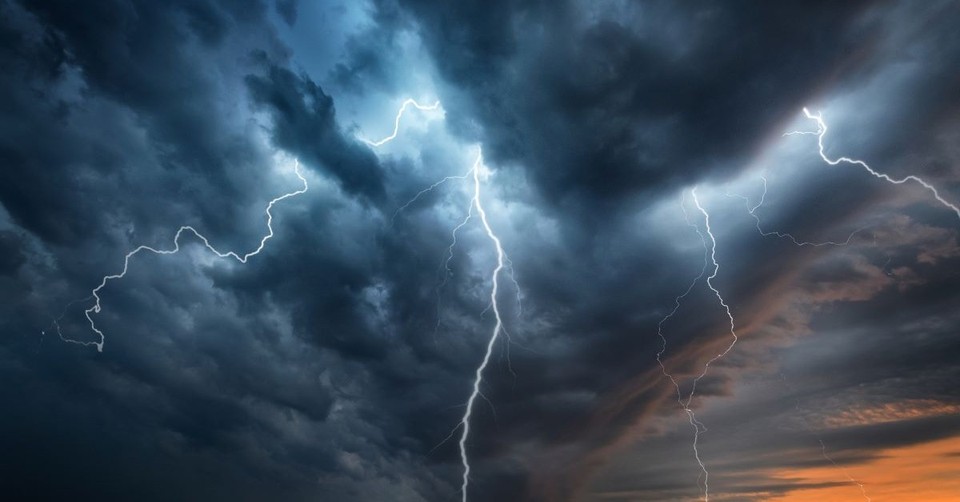When Did Jesus See Satan "Fall Like Lightning"?

In one of the more enigmatic verses in the Gospel of Luke, Jesus tells His disciples, "I saw Satan fall like lightning from heaven" (Luke 10:18). The question isn't about the what of Jesus' statement. It's clear that Satan is under judgment. Rather, the confusion is over the when of the statement. It might sound like a reference to when Satan became Satan, before the garden of Eden-abandoning his status among God's heavenly host-but that conclusion would be too hasty
We basically have three options when it comes to figuring out the timing of Satan's fall: before, during or after Jesus' own time. Many people have offered opinions. Perhaps the most common interpretation is that Jesus is seeing or remembering the original fall of Satan. This option makes little sense in context. Prior to the statement, Jesus had sent out the disciples to heal and preach that the kingdom of God had drawn near to them (Luke 10:1-9). They return amazed and excited by the fact that demons were subject to them in the name of Jesus (Luke 10:17). Jesus then says, "I saw Satan fall like lightning from heaven."
There is a connection between the kingdom, the defeat of demons, and Satan. But if Satan's fall in Luke 10:18 speaks of an event in the remote past, why wasn't the kingdom established then? Why was Satan still powerful when Jesus showed up on the scene? Even with the kingdom of Israel under David and the presence of God in the temple, the power and influence of Satan is evident on nearly every page of Old Testament history.
The view that Jesus was referring to Satan's fall during his own ministry is better, but is not without problem. We don't read anywhere in the Bible of anyone casting out demons prior to Jesus' ministry. That display of power-as well as the announcements of the kingdom and the ruling authority of God on earth-is unmistakable. This is consistent with what Luke writes in the next chapter (Luke 11:14-23), where he identifies Jesus with the "strong man" who binds Satan. With Jesus having bound the strong man (Satan), He and His disciples can plunder Satan's realm. This seems to tie in with what Jesus says after His statement about Satan (Luke 10:19-20), where He grants the disciples power over the forces of evil. But these verses also produce difficulties. Why do we read later in the same gospel and other parts of the New Testament that the disciples weren't immune from Satan's power (Luke 22:31-61; 2 Corinthians 12:7; 1 Thessalonians 2:18)?
This brings us to the third option: Jesus' statement refers to a time subsequent to His own. Since Satan was (and is) still alive and well-with respect to his ongoing opposition to the Church everywhere-it makes sense to see Satan's fall "like lightning from heaven" as a future event. The wording used by Luke ("I saw") was quite common in the Old Testament for introducing prophetic visions, especially in the book of Daniel (Daniel 4:10; Daniel 7:2, Daniel 7:4, Daniel 7:6-7, Daniel 7:9, Daniel 7:11, Daniel 7:13, Daniel 7:21).1
My own view is a combination of the second and third view. It seems quite clear that the rule of God began at the ministry of Jesus, but it is a rule in progress that will reach a final culmination at a future time. As the Old Testament repeatedly reminds us, and as Jesus affirmed in Luke 10:18, on that day the defeat of our cosmic enemy will be swift and final.
Endnote:
1. The very same form of the Greek verb used in Luke 10:18 is used in all these "vision" references in the Greek version of Daniel.
Photo Credit: ©GettyImages/Trifonov_Evgeniy

Article courtesy of Bible Study Magazine published by Logos Bible Software. Each issue of Bible Study Magazine provides tools and methods for Bible study as well as insights from people like John Piper, Beth Moore, Mark Driscoll, Kay Arthur, Randy Alcorn, John MacArthur, Barry Black, and more. More information is available at http://www.biblestudymagazine.com. Originally published in print: Copyright Bible Study Magazine (Jan–Feb 2010): pg. 41.
Originally published September 14, 2018.





